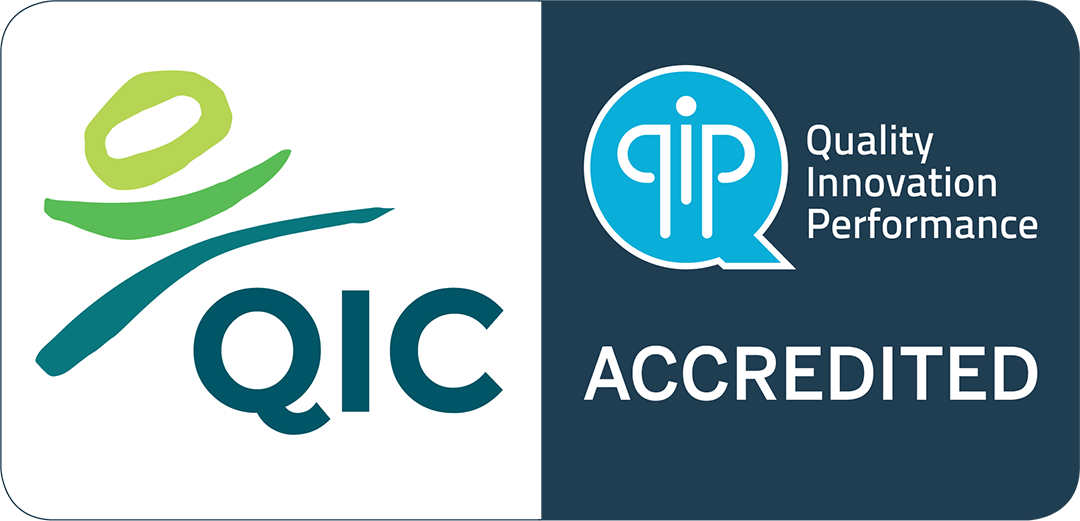Supporting mental health during withdrawal
[CW: This story discusses mental health challenges and substance use.]
Alcohol and drug dependence and mental health issues often go hand-in-hand. They have an inter-twined relationship that’s unique to every person’s situation. In fact, around 50-76% of people accessing AOD services have at least one mental health condition.
This story with Windana psychologist and Dual Diagnosis Practitioner Kay-Sheree explores how. You can read more about dual diagnosis here.
Victoria’s Mental Health Royal Commission includes the recommendation for integrated treatment, care and support to people living with mental health issues and AOD dependence. A key part of this at Windana is ensuring our clients have access to mental health support during residential withdrawal. Mental health support is offered across all our services in various forms.
Kay-Sheree is one of our mental health professionals supporting clients during their stay. Kay-Sheree is an important part of the service at Windana’s adult residential withdrawal program in St Kilda, and youth program in Dandenong.
At both programs, Kay-Sheree runs a weekly group where she meets clients to start to explore how they are feeling.
“This group is centred around emotions,” Kay-Sheree says.
“It is a relevant topic in withdrawal as emotions tend to come up around day three or four, and most mental health challenges have an emotional component.”
Building this initial rapport helps clients know there is someone they can approach to talk to further in a one-on-one setting.
“Clients can access sessions for brief intervention around anything that comes up during withdrawal – such as managing nightmares, unwanted flashbacks, thoughts and feelings.”
An important part to Kay-Sheree’s role is also to check-in with clients, listen to what they’re going through or have experienced, and then suggest next steps for managing the issue after completing their withdrawal program. This looks different for each individual – but often includes clarification of diagnosis and advice around ongoing treatment.
Often, undiagnosed mental health issues and other problems people face in life surface during withdrawal at Windana – providing an opportunity for clients to get help. This is often around anxiety, depression, trauma, relationships and violence.
“We know that integrating AOD and mental health treatment leads to positive outcomes for clients, and is more effective than segregated treatment,” says Kay-Sheree.
“This means treatment provided by one organisation with a consistent approach, philosophy and culture, and where the client feels safe.” This is supported by recommendation 35 of the MHRC, which looks to improve the outcomes for people living with AOD dependence and mental illness.
Having professional mental health support within the organisation also helps establish trust and safety, and means clients don’t have to repeat their story over-and-over to different service providers.
It allows Kay-Sheree to contribute to a client’s clinical review and be present for handovers. These are opportunities to offer input on an individual’s needs from a psychologist’s viewpoint, helping other staff support clients with complex mental health needs using their diverse areas of practice. In residential withdrawal this includes a holistic mix of case work, naturopathy, nursing, nutrition, yoga, meditation, art therapy and psychological support.
“Sharing of knowledge means we are able to support clients who may have been excluded from AOD services due to a lack of understanding around mental health needs,” says Kay-Sheree.
On a program level, Kay-Sheree also helps shape the therapeutic groups that are run for clients in withdrawal.
Kay-Sheree believes an understanding of the links between substance use and mental health in treatment has come a long way.
“When I first started working in AOD, mental health problems and AOD issues were often considered separate. This attitude is changing.”
Kay-Sheree says that meeting with a client during their withdrawal as soon as possible when they’re struggling is a way we can help someone.
“Windana is a client’s home and safe space during withdrawal,” Kay-Sheree says.
“This in itself is healing and stabilising for clients with trauma and difficult past experiences.
“Providing integrated mental health support offers profound benefit for our clients.”
Useful resources:
LifeLine
Around-the-clock crisis support and suicide prevention services, so that nobody has to face their darkest moments alone.
PH: 13 11 14 (24/7)
DirectLine
Offering alcohol and other drug counselling and referrals, DirectLine is a first step for getting support and finding a local Intake and Assessment service.
PH: 1800 888 236 (24/7)
Beyond Blue
Providing information and support to help everyone in Australia achieve their best possible mental health. Services include brief support, information and advice and assistance with services.
PH: 1300 224 636 (24/7)
SANE Australia
Support, training and education enabling people with mental health challenges to lead a better life.
PH: 1800 187 263 (9am-5pm, Monday to Friday).
Supporting mental health during withdrawal
[CW: This story discusses mental health challenges and substance use.]
Alcohol and drug dependence and mental health issues often go hand-in-hand. They have an inter-twined relationship that’s unique to every person’s situation. In fact, around 50-76% of people accessing AOD services have at least one mental health condition.
This story with Windana psychologist and Dual Diagnosis Practitioner Kay-Sheree explores how. You can read more about dual diagnosis here.
Victoria’s Mental Health Royal Commission includes the recommendation for integrated treatment, care and support to people living with mental health issues and AOD dependence. A key part of this at Windana is ensuring our clients have access to mental health support during residential withdrawal. Mental health support is offered across all our services in various forms.
Kay-Sheree is one of our mental health professionals supporting clients during their stay. Kay-Sheree is an important part of the service at Windana’s adult residential withdrawal program in St Kilda, and youth program in Dandenong.
At both programs, Kay-Sheree runs a weekly group where she meets clients to start to explore how they are feeling.
“This group is centred around emotions,” Kay-Sheree says.
“It is a relevant topic in withdrawal as emotions tend to come up around day three or four, and most mental health challenges have an emotional component.”
Building this initial rapport helps clients know there is someone they can approach to talk to further in a one-on-one setting.
“Clients can access sessions for brief intervention around anything that comes up during withdrawal – such as managing nightmares, unwanted flashbacks, thoughts and feelings.”
An important part to Kay-Sheree’s role is also to check-in with clients, listen to what they’re going through or have experienced, and then suggest next steps for managing the issue after completing their withdrawal program. This looks different for each individual – but often includes clarification of diagnosis and advice around ongoing treatment.
Often, undiagnosed mental health issues and other problems people face in life surface during withdrawal at Windana – providing an opportunity for clients to get help. This is often around anxiety, depression, trauma, relationships and violence.
“We know that integrating AOD and mental health treatment leads to positive outcomes for clients, and is more effective than segregated treatment,” says Kay-Sheree.
“This means treatment provided by one organisation with a consistent approach, philosophy and culture, and where the client feels safe.” This is supported by recommendation 35 of the MHRC, which looks to improve the outcomes for people living with AOD dependence and mental illness.
Having professional mental health support within the organisation also helps establish trust and safety, and means clients don’t have to repeat their story over-and-over to different service providers.
It allows Kay-Sheree to contribute to a client’s clinical review and be present for handovers. These are opportunities to offer input on an individual’s needs from a psychologist’s viewpoint, helping other staff support clients with complex mental health needs using their diverse areas of practice. In residential withdrawal this includes a holistic mix of case work, naturopathy, nursing, nutrition, yoga, meditation, art therapy and psychological support.
“Sharing of knowledge means we are able to support clients who may have been excluded from AOD services due to a lack of understanding around mental health needs,” says Kay-Sheree.
On a program level, Kay-Sheree also helps shape the therapeutic groups that are run for clients in withdrawal.
Kay-Sheree believes an understanding of the links between substance use and mental health in treatment has come a long way.
“When I first started working in AOD, mental health problems and AOD issues were often considered separate. This attitude is changing.”
Kay-Sheree says that meeting with a client during their withdrawal as soon as possible when they’re struggling is a way we can help someone.
“Windana is a client’s home and safe space during withdrawal,” Kay-Sheree says.
“This in itself is healing and stabilising for clients with trauma and difficult past experiences.
“Providing integrated mental health support offers profound benefit for our clients.”
Useful resources:
LifeLine
Around-the-clock crisis support and suicide prevention services, so that nobody has to face their darkest moments alone.
PH: 13 11 14 (24/7)
DirectLine
Offering alcohol and other drug counselling and referrals, DirectLine is a first step for getting support and finding a local Intake and Assessment service.
PH: 1800 888 236 (24/7)
Beyond Blue
Providing information and support to help everyone in Australia achieve their best possible mental health. Services include brief support, information and advice and assistance with services.
PH: 1300 224 636 (24/7)
SANE Australia
Support, training and education enabling people with mental health challenges to lead a better life.
PH: 1800 187 263 (9am-5pm, Monday to Friday).






